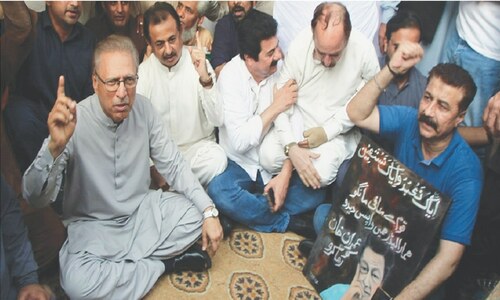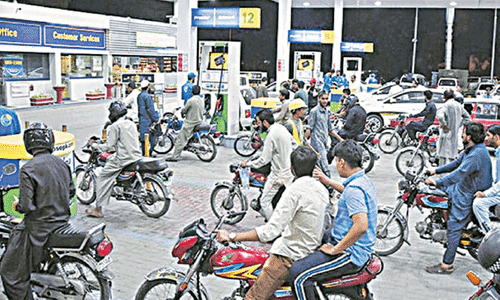ISLAMABAD, March 7: Pakistan and India have agreed to exchange specific information in order to facilitate terrorist acts-related investigations on either side and help prevent such acts of violence in the two countries under the Joint Anti-Terrorism Mechanism.
This was reflected in a brief joint statement issued here on Wednesday after the first meeting of the Pakistan-India Joint Anti-Terrorism Mechanism set up in November 2006.
“It was also agreed that while the Anti-Terrorism Mechanism would meet on a quarterly basis, any information which is required to be conveyed on priority basis would be immediately conveyed through the respective Heads of the Mechanism,” the joint statement said.
The Anti-Terrorism Mechanism is headed by additional secretaries of the two foreign ministries.
According to the statement, the two sides discussed the parameters of the Anti-Terrorism Mechanism and agreed that specific information would be exchanged through the Mechanism for helping investigations on either side related to terrorist acts and preventing violence and terrorist acts in the two countries.
The statement did not specify the procedure of transfer of information and extending help in investigations.
Although a brief joint statement, it did not come about easily and it was after the intervention of foreign secretary Riaz Mohammad Khan that it was finalised, it is learnt.
The three-paragraph statement noted: “In pursuance of the decision taken during a meeting between the President of Pakistan and the Prime Minister of India in Havana, Cuba, on Sept 16, 2006, the first meeting of the Anti-Terrorism Mechanism was held in Islamabad on March 6, 2007.”
The Pakistan delegation was led by Tariq Osman Hyder, Additional Secretary (UN&EC), Ministry of Foreign Affairs, and the Indian delegation was headed by K. C. Singh, Additional Secretary (IO), Ministry of External Affairs of India.
The Indian delegation also called on the foreign secretary in the afternoon. There was no official word on what transpired at the meeting that went on for about 30 minutes. “It was just a courtesy call,” Foreign Office Spokesperson Tasnim Aslam said when asked about it.
However, according to sources privy to the meeting, the foreign secretary termed the Joint Mechanism a positive development and said it could help curb terrorism through two-way transfer of information. Reportedly, he also expressed the hope that India would respond positively to the specific information handed over by Pakistan on Indian interference in Balochistan.
The Samjhota Express blasts also figured in the discussions.
Before leaving for Lahore in the afternoon, the head of the Indian delegation said he was satisfied with the outcome of the meeting. He termed “encouraging” Pakistan’s response to the list of 35 people handed over to the foreign secretary by the Indian side in November, informed sources told Dawn.
Notably, no joint press conference was held after the much-awaited inaugural meeting of the Anti-Terrorism Mechanism.














































Dear visitor, the comments section is undergoing an overhaul and will return soon.